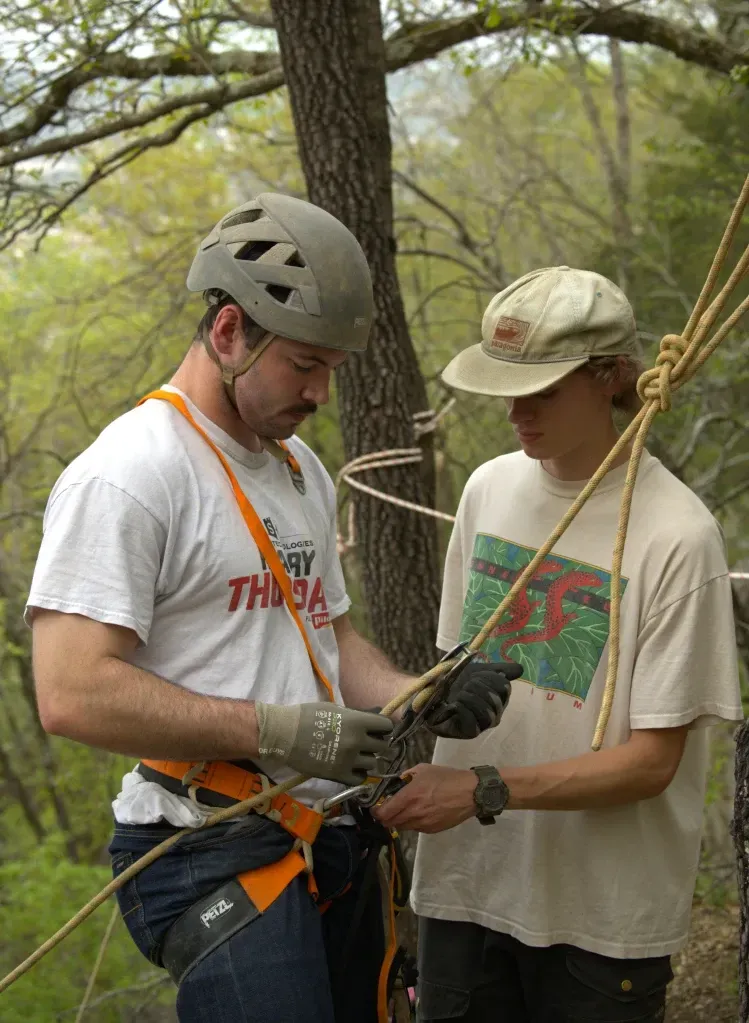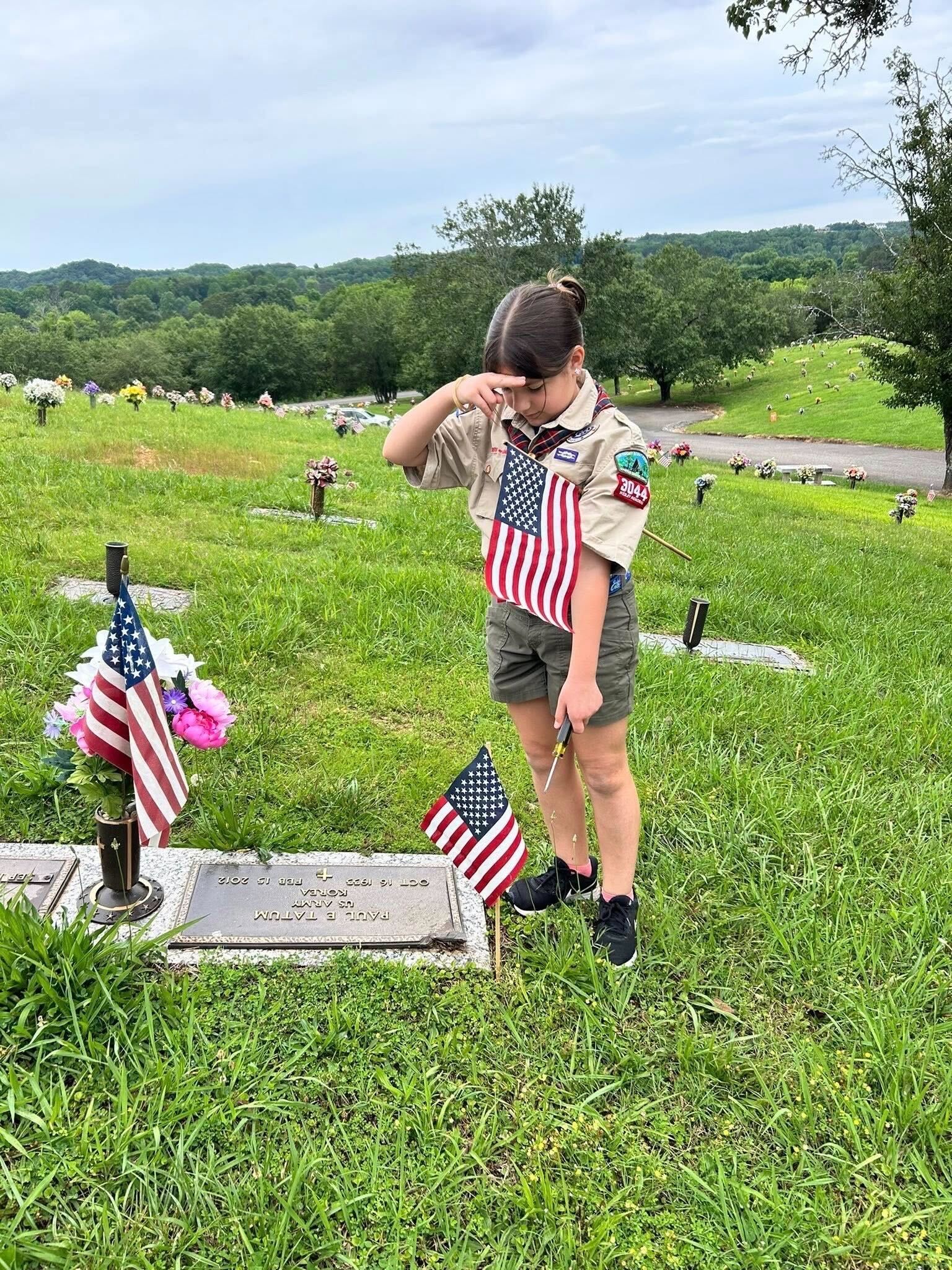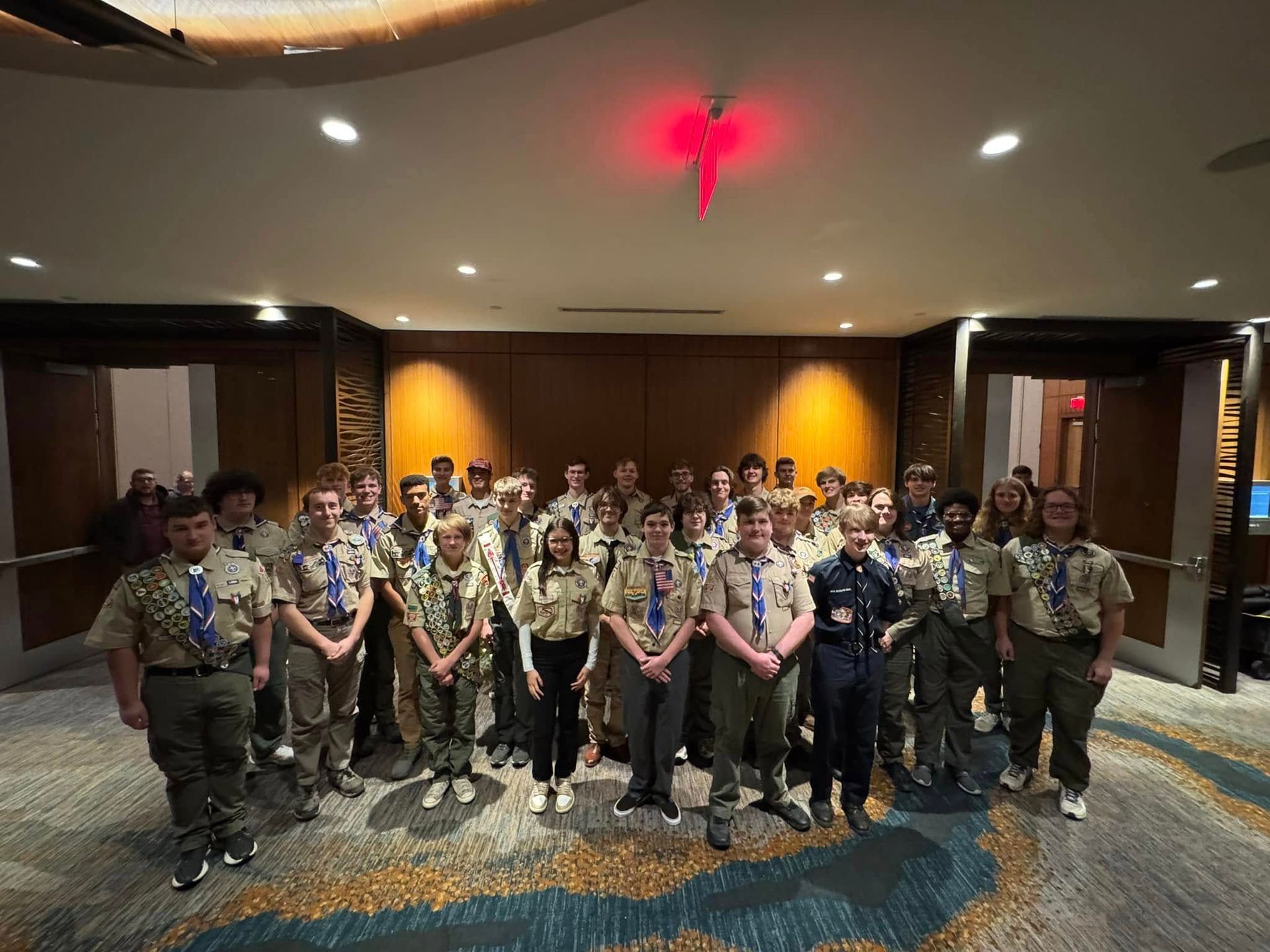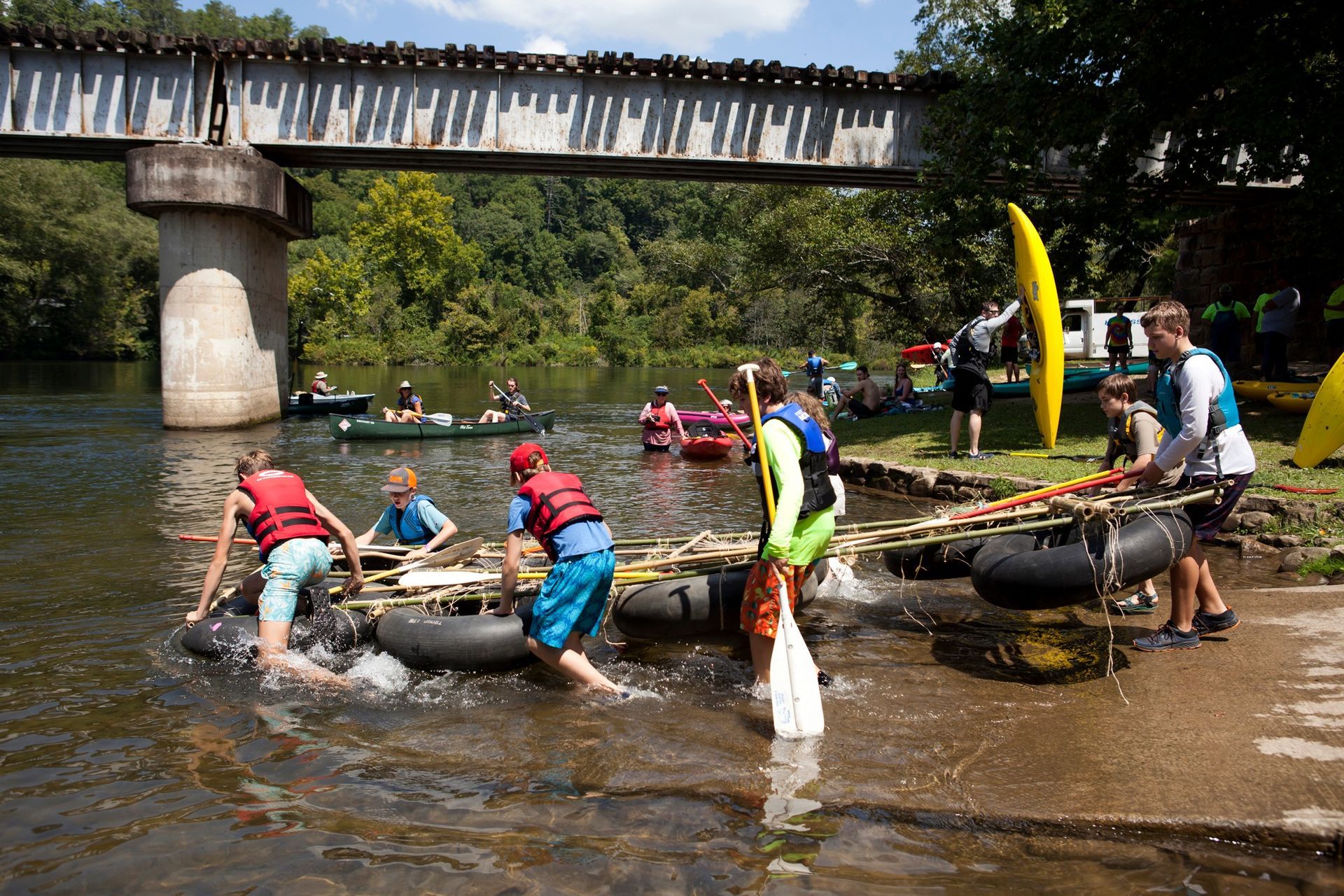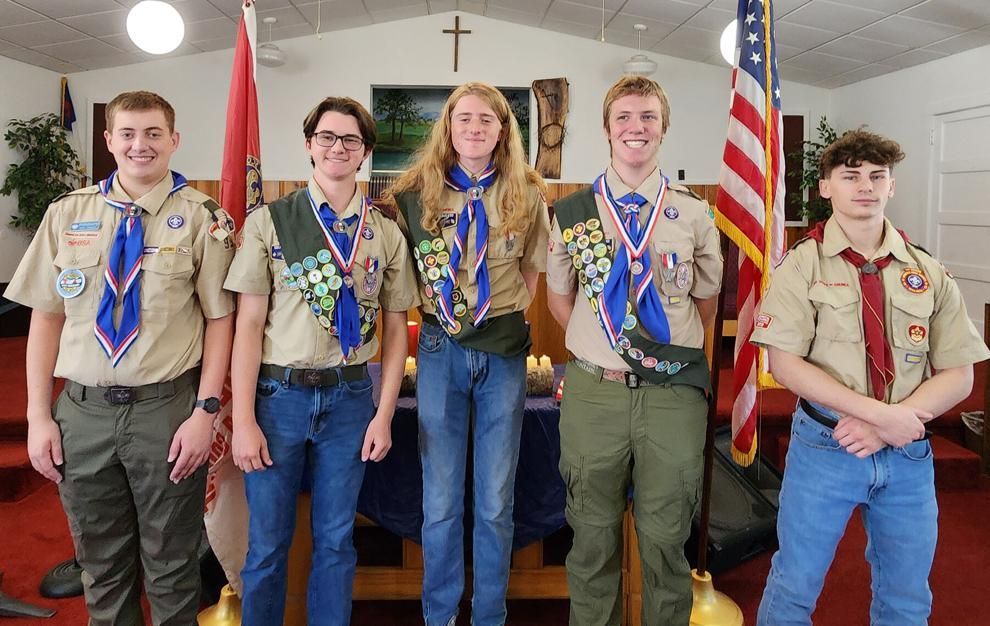Scouting Alumni & Eagle Scout from Troop 166: Spelunking Shenanigans
Eagle Scout, Blake Webber, talks about his experience in the caving community.
Beneath the rugged mountains of Tennessee, Alabama, and Georgia, a region known as TAG, is a network that is somewhat unknown to most, boasting intricate passages, waterfalls, and hidden chambers that Blake Webber has devoted himself to exploring and preserving.
Webber, a civil engineering major at UTC and active member of the UTC Wind Ensemble and Men’s Ultimate Frisbee, first discovered caving in 2021 at a local festival.
“I was thrown off the deep end, completing a relatively challenging vertical trip my first time in a ‘real’ cave,” Webber said. “I was immersed in the challenge and felt like I had stepped into another world.”
Since that first exhilarating descent, Webber has explored about 150 known caves, found 21 new ones, and even participated in surveying efforts. His passion for exploration led him to start the UTC Caving Club in October 2024, with the goal of giving other students a chance to meet the caving community and experience the excitement and difficulties of caving. According to Webber, caving is an interesting new way to interact and connect with the nature of the area that most people don’t even know about.
He emphasizes the importance of community involvement, recommending all to join the National Speleological Society (NSS), a non-profit organization that is dedicated to the explorations, study, and protection of caves and karst, and local grottos for immediate access to valuable resources like maps, trip reports, scientific articles, and a wide network of people.
For the caving club meetings that Webber leads, he often features presentations covering topics like LiDAR mapping, vertical caving techniques, trip reports from his adventures and conservation practices. He emphasizes that a conservation mindset is a focal point of educating new cavers, as caves are extremely delicate environments.
Few realize that the TAG region holds over 19,000 caves, with Tennessee alone boasting the highest number in the country. Just an hour from UTC’s campus lies the deepest free-falling pit in the United States, drawing people from all around to experience the beauty of Appalachian caves. Pits are vertical drops in caves that cannot be navigated without the use of ropes or ladders, and much skill.
For Webber, the essence of caving goes beyond physical challenge or mere curiosity.
“Caving is truly one of the last, reasonably accessible unknown frontiers of our earth,” Webber said. “Standing (or crawling) in places nobody else has visited is a deeply rewarding yet odd feeling.”
Webber’s adventurous spirit has roots in his upbringing and experiences. As an Eagle Scout who once backpacked for two weeks in New Mexico with his scout troop, he credits his early years of competitive climbing and rigorous training for shaping his present-day passion.
Through caving, he has also gained new experiences, such as a two-week backpacking trip in Chile’s Patagonia region. Though the trip didn’t involve caving, he attributes the adventure to friendships formed through the caving community.
Webber noted that Chattanooga is uniquely suited to supporting a diverse range of outdoor activities, making it an ideal home base for adventurers.
“Chattanooga is an anomaly in the outdoor world,” he said. “Cavers love to cave, but I have friends who’ve rafted the Grand Canyon and climbed Yosemite. Chattanooga is a mecca for climbing, mountain biking, hiking, caving, and whitewater.”
Preparation for caving trips begins the night before, with Blake emphasizing the importance of good nutrition, hydration, and rest to stay efficient and focused underground. Problem-solving skills are critical, particularly for those responsible for leading and rigging ropes. His favorite type of caves is wet multi-drops, which are caves that feature a series of vertical drops, often involving ropes and occasional water hazards, especially those that require long, uphill hikes to reach the entrance.
Safety remains essential. Webber emphasizes calculated risk, awareness of surroundings, and the importance of knowing one’s boundaries. Maintaining three points of contact and making smart decisions underground are key ways to stay safe—in fact, Blake believes the drive to the cave poses a greater risk than the cave itself.
Webber’s underground exploration has shown him more than physical obstacles, as he has discovered beautiful geological structures and prehistoric fossils. Webber has observed multiple interesting cave features, including fossilized marine life such as shark teeth and crinoids, together with stalactites and soda straws and rare formations like gypsum crystals, helictites, and cave pearls.
Webber demonstrates how passion combined with community involvement and respect for nature leads to exploration and discovery, which motivates others to explore unknown territories with curiosity, caution, and awe.
According to him, it remains challenging to explain his intense passion for caving to individuals who have no experience with this activity. The experience requires personal involvement to develop your own connection with it.
“It can be difficult to get people who’ve never caved to understand why I’m so passionate about it,” he said. “I think it’s something you have to try for yourself and create your own relationship with.”
